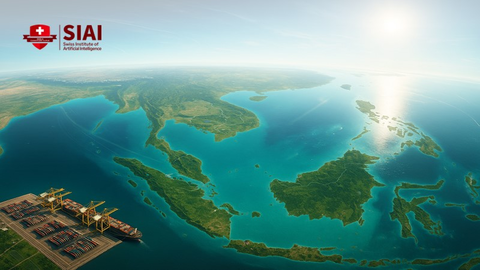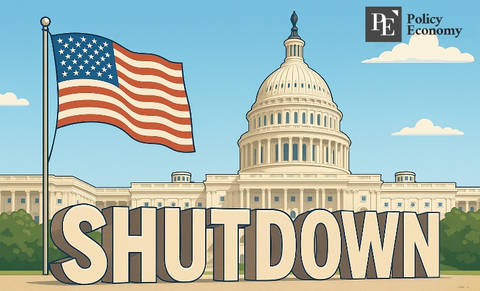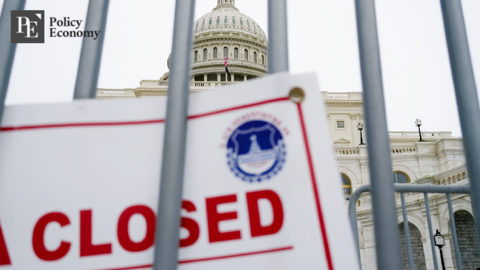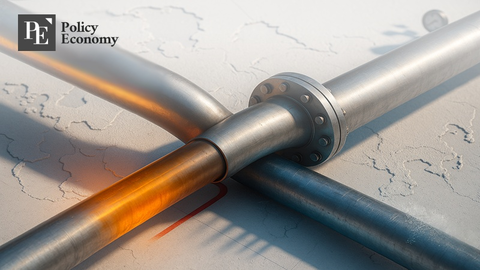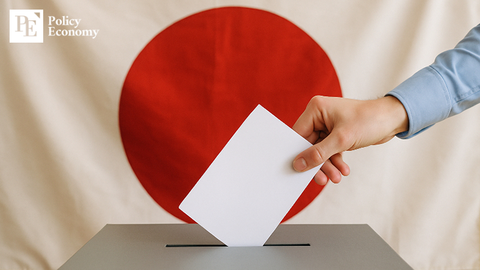[동아시아포럼] NATO의 동아시아 확장과 유럽의 안보 딜레마
입력
수정
[동아시아포럼]은 EAST ASIA FORUM에서 전하는 동아시아 정책 동향을 담았습니다. EAST ASIA FORUM은 오스트레일리아 국립대학교(Australia National University) 크로퍼드 공공정책대학(Crawford School of Public Policy) 산하의 공공정책과 관련된 정치, 경제, 비즈니스, 법률, 안보, 국제관계에 대한 연구·분석 플랫폼입니다.
최근 동아시아에서의 영향력을 확대하려는 북대서양조약기구(NATO)의 시도는 중국에 대항하기 위한 시도로 볼 수 있지만 유럽의 동맹국들 입장에서는 위험한 잠재적 전략으로 풀이된다. NATO의 노력은 자칫 중국과의 긴장을 고조시켜 중국과 러시아가 더 긴밀하게 결합할 가능성이 있기 때문이다. 더욱이 유럽 안보의 관점에서 중국을 견제하는 전략은 국제사회에서 미국의 지배력을 유지하는 데는 도움이 되겠지만 유럽에는 별다른 이점이 없다.
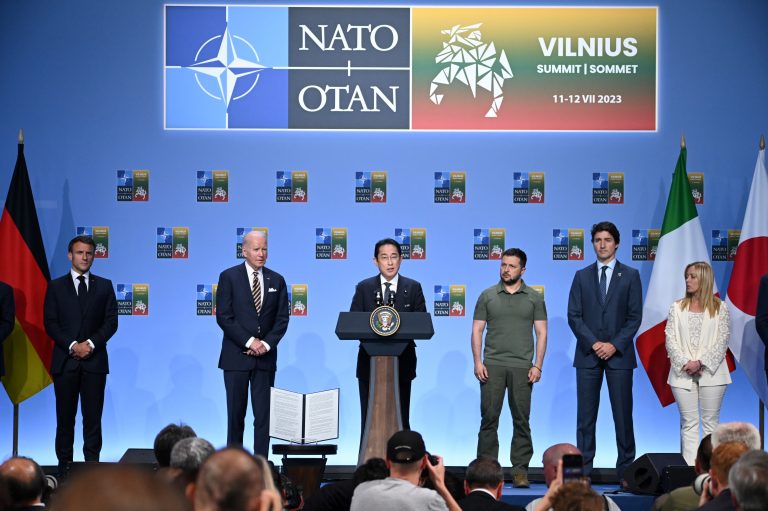
NATO, 일본 등 동아시아에서 영향력 확대 시도
현재 NATO는 동아시아 국가를 회원국으로 가입시킬 계획은 없으나 NATO와의 협력을 희망하는 동아시아 국가와의 전략적 파트너십은 확대하고 있다. 일례로 한국, 일본, 호주, 뉴질랜드 등은 국가별 적합 파트너십 프로그램(Individually Tailored Partnership Program, ITPP)이라 불리는 협정을 통해 NATO와의 협력관계를 강화하고 있다. 특히 일본의 경우 러시아-우크라이나 전쟁 이후 NATO와의 전략적 협력관계가 더욱 강화되고 있다. 지난달 12일 리투아니아 수도 빌뉴스에서 열린 NATO 정상회의에서 예른스 스톨텐베르크(Jens Stoltenberg) NATO 사무총장은 기시다 후미오 일본 총리를 만나 "일본만큼 가까운 파트너는 없다"고 밝히기도 했다.
당초 NATO는 동아시아 국가들과의 안보관계 강화를 위해 일본 도쿄에 연락사무소를 설치하는 방안을 계획했지만 중국과의 긴장을 촉발할 것이란 우려가 제기되면서 보류됐다. 당시 에마뉘엘 마크롱(Emmanuel Macron) 프랑스 대통령은 "NATO는 북대서양 밖으로 범위를 확대해서는 안 된다"며 “만약 NATO가 그 범위와 영역을 확대하려고 밀어붙인다면, 큰 실수를 하는 것”이라고 경고한 바 있다. 유럽은 미중 대결 구도에서 거리를 둬야 한다는 지적이다.
공식적으로 NATO는 해양 안보, 신기술, 사이버 보안, 기후 변화 등 국제사회의 현안을 해결하기 위한 수단으로 동아시아와의 협력을 강화하는 것으로 알려졌다. 하지만 실제로는 NATO의 이익과 안보, 가치에 도전하는 중국에 대응하려는 시도로 해석하는 관점이 많다. 실제 지난 1월 스톨텐베르그 사무총장은 기시다 총리와의 회담에서 중국의 대규모 군사 증강, 핵무기의 확충과 현대화에 대해 우려를 나타냈는데 이 발언은 NATO와의 협력을 진전시키고자 희망해 온 기시다 총리에게 긍정적인 시그널을 보낸 것으로 볼 수 있다.
중국 견제하려는 조치로, 실제 안보 이점은 없어
하지만 NATO가 동아시아에서의 군사적 역할을 확대하려는 시도는 중국 정부를 자극할 가능성이 높아 유럽 안보 차원에서는 실질적인 이득이 되기는 어려울 것으로 보인다. 실제 중국 정부는 NATO가 아시아태평양 지역의 현안에 지속적으로 개입해 긴장을 고조시키고 진영 간 대립을 부추긴다며 강하게 비판했다. 아울러 미국의 반중(反中) 기조와 무관한 동맹국들이 NATO라는 프레임 안에서 하나로 통합돼 적대적인 관계를 조성할 것이라고 우려했다.
NATO는 스스로를 '방어적 군사동맹'이라고 강조해 왔지만 추후 NATO가 동아시아의 군사적 역할을 확대한다면 중국 등 주변국과의 갈등은 불가피할 것으로 보인다. 국제관계 전문가들은 "국제관계에서 특정 국가의 의도를 온전히 파악하기는 불가능하다"며 "그렇기 때문에 주변국들은 해당 국가에 대한 경계를 강화하고 대응 조치를 강구하는 경향이 있다"고 지적했다.
NATO의 회원국들은 중국이 국제사회에서 영향력을 강화하려 한다고 비판하면서도 정작 자신들이 동아시아에 대한 군사적 역할을 확대하는 과정에서 중국을 자극하고 있다는 점은 간과하고 있다. 중국이 NATO와 동아시아 국가 간 협력관계를 자국에 대한 위협으로 인식한다면 중국 정부는 북한, 러시아 등 주변국과의 동맹을 구축하고 군사력을 강화해 이에 대응할 가능성이 높고 이는 결국 유럽 안보에 역효과로 작용하게 될 것이다.
일반적으로 국제관계에서 특정 국가의 의도를 정확하게 파악하기 어려운 상황에서 관련국 간 보복전략으로 인해 상황이 악화되는 사례가 있는데 이를 '안보 딜레마'라 부른다. 러시아-우크라이나 전쟁 이후 안보 딜레마는 때론 국제사회의 위협행위를 정당화하는 타협주의로 여겨지기도 한다. 러시아의 우크라이나 침공은 절대 정당화될 수 없는 침략행위지만 안보 딜레마 이론대로라면 'NATO의 지나친 확장이 우크라이나 침공을 야기했다'는 블라디미르 푸틴(Vladimir Putin) 러시아 대통령의 변명을 받아들여야 한다.
마크롱 대통령 "미·중 권력게임에 유럽 개입해선 안 돼"
러시아-우크라이나 전쟁은 지리적으로 인접한 국가들 간의 긴장 관계 속에서 영향력을 확대하려는 시도가 어떤 위험을 야기하는지 보여줬다. 헝가리, 폴란드, 체코에 이어 우크라이나, 조지아 등 동유럽 국가들이 NATO에 가입하려는 시도는 러시아에 위협으로 인식될 수밖에 없다. 실제 해당 국가들이 방어를 목적으로 NATO에 가입했다고 하더라도, 러시아의 대응을 단순히 안보 딜레마의 타협주의 관점에서 설명하기는 어렵다.
더욱이 동아시아에서의 세력 확장은 합리적인 시도로 보기 어렵다. 동유럽은 지리적으로 인접해 있어 유럽 안보와 긴밀한 관련이 있지만 동아시아 국가와의 파트너십은 단지 중국 정부를 자극할 뿐이다. 그동안 중국 정부의 결정들이 국제사회에서 비판을 받아왔다고 하더라도, 중국은 유럽에 직접적인 위협을 가한 사실이 없으며 지난 2020년 EU 외교장관들도 이 사실을 인정한 바 있다. 하지만 러시아-우크라이나 전쟁 이후 유럽에서 현실적이고 합리적인 관점을 찾기 어려워졌다. 러시아- 우크라이나 전쟁은 유럽인들의 정서를 흔들리게 했고 이 때문에 국제관계의 긴장과 위험에 대해 논리적으로 판단하고 예측하기 어렵게 만들었다.
동아시아에 대한 NATO의 과도한 야망은 중국을 유럽의 적대국으로 만들어 불필요한 위험을 초래할 가능성이 있다. NATO가 자신들의 영역을 벗어나 동아시아로 세력을 확장하는 것이 유럽 안보에 있어 어떤 이점이 있는지 의심해 봐야 한다. NATO의 새로운 동아시아 정책은 사실상 유럽이 아니라 미국의 이익에 부합한다. 미국은 중국을 견제할 수 있는 연합체를 내세워 국제사회에서의 지배력을 유지하고자 하는 만큼, NATO와 동아시아의 파트너십은 전략적으로 중요할 수 있다. 하지만 유럽은 미국의 권력게임에 참여할 필요가 없다. 마크롱 대통령의 말대로 이 게임에 참여하는 것은 '덫에 걸린 유럽(trap for Europe)'이 될 뿐이다.
The errors of NATO’s East Asia engagement
NATO engagement in East Asia, to counter China’s influence, is a misguided and potentially dangerous strategy for the alliance’s European members. It is bound to increase tensions between China and NATO and risks binding China and Russia closer together. A China containment strategy has no tangible benefits for European security and predominantly serves the interests of a United States that is desperately trying to maintain its global hegemony.

While NATO is not currently looking to recruit new members in East Asia, it is forging strategic partnerships with ‘likeminded’ states in the region. Countries like Japan, South Korea, Australia and New Zealand are all in the process of transitioning from being NATO’s ‘global partners’ to becoming members of a more tangible arrangement that NATO has labelled ‘Individually Tailored Partnership Programs’.
NATO’s strategic cooperation with Japan has increased in the wake of Russia’s invasion of Ukraine. At the July 2023 NATO Leaders Summit in Lithuania, NATO Secretary-General Jens Stoltenberg greeted Japanese Prime Minister Fumio Kishida, telling him that ‘no partner is closer than Japan’.
As a step toward more substantial security relations, NATO was planning to open a liaison office in Tokyo — the first of its kind in Asia. But these plans have been shelved due to apprehensions that they might fuel tensions between NATO and China. French President Emmanuel Macron warned that such a move would be a ‘big mistake’.
Officially, NATO’s outreach to East Asia aims at enhancing cooperation on issues such as ‘maritime security, new technologies, cyber, climate change, and resilience’. But in practice, the move is unmistakably an attempt to counter China, which NATO now openly regards as a ‘challenge [to] our interests, security and values’. In his meeting with Kishida, Stoltenberg noted his concern about ‘China’s heavy military build-up’ and ‘the modernization and expansion of its nuclear forces’. This must have been music to Kishida’s ears, who has persistently strived to develop closer relations with NATO for precisely this reason.
But it is difficult to see how European security would benefit from an enlarged NATO military role in East Asia, which is certain to antagonise Beijing. Unsurprisingly, China has responded vociferously to NATO’s words and actions. China fears that the United States’ largely unconnected alliances in the region will take on a more integrated and anti-Chinese character under the NATO umbrella. NATO has countered that its military presence is benign and defensive in nature.
NATO’s allegedly defensive intentions are unlikely to reassure Beijing. Virtually all international relations experts agree that it is impossible to correctly decipher other states’ intentions. Without certainty of others’ intentions, states tend to raise their guard and take countermeasures. One does not have to be an international relations expert to predict that this could well happen in East Asia should NATO increase its military presence there.
NATO members often complain about Chinese attempts at changing the status quo, but they seem unable or unwilling to recognise that their own venture into East Asia constitutes a change of the status quo — something Beijing would feel compelled to respond to.
This dynamic of tit-for-tat escalation in the absence of certainty used to be common knowledge in the international relations community. It is often called the security dilemma. If Chinese leaders perceive NATO engagement with East Asian countries as increasing the threat to China, they might also take precautions by increasing armaments and alliance building. One counterproductive effect on European security, for example, would arise if China moved even closer to Russia.
But after Russia’s invasion of Ukraine, warnings about security dilemmas have often been dismissed as appeasement. If we accept the security dilemma logic, hawks contend, would we not also have to accept Russian President Vladimir Putin’s excuse that NATO enlargement forced him to invade Ukraine? The answer is no. It is of course true that Russia’s invasion is illegal and unjustified. But it is also true that Moscow perceived NATO enlargement as threatening, although each new NATO member had purely defensive reasons for joining the alliance. Until recently, the latter point was not seen as a crazy appeasement argument.
Wars stir emotions. The Ukraine War has made Europeans blind to the dangerous consequences of geographically expanded engagement. While NATO’s enlargement in Eastern Europe was tightly connected to European security, deepened engagement in East Asia has zero rhyme or reason. It will only serve to antagonise China. Despite China’s often problematic behaviour, it does not pose a direct threat to Europe. In 2020, this was recognised even by the European Union foreign affairs chief. But such realism is hard to come by in post-invasion Europe. NATO’s East Asian ambitions unnecessarily risk turning China into an enemy of Europe.
When NATO strays so far ’out of area’ that it begins operating in East Asia, one has to question the benefits for European security. There seems to be few, if any. For the United States, NATO’s turn to East Asia is strategically significant. Washington is seeking to maintain US global hegemony by binding together its loose alliance networks into a firmer coalition capable of containing a rising China. It seems clear that NATO’s new East Asia policy is primarily directed from Washington.
But Europe does not have to play the United States’ power games. As French President Emmanuel Macron correctly stated earlier in 2023, getting involved in such games would be ‘a trap for Europe’.
원문의 공동저자는 울브 한센(Ulv Hanssen) 일본 소카대학교(Soka University) 조교수와 리누스 학스트룀(Linus Hagström) 스웨덴 국방대학 법·정치학부 부학장입니다.



